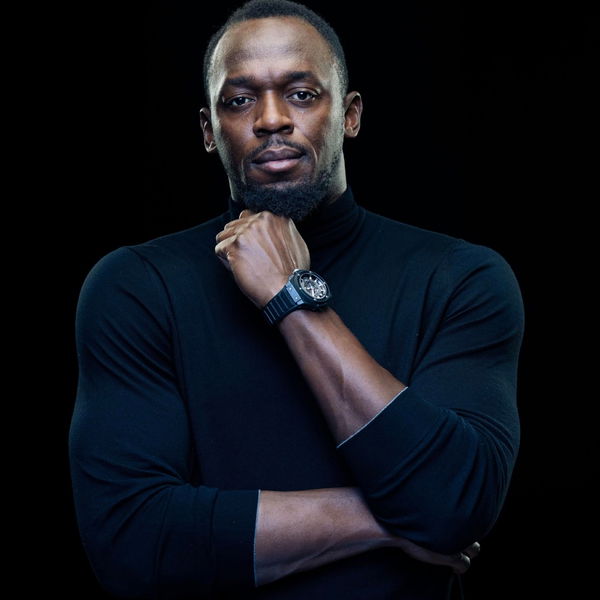
via Imago
Credits: FB

via Imago
Credits: FB
“It’s really sad that I have to walk away now,” Bolt admitted back in 2017. And honestly, who could blame him? Usain Bolt—the name alone makes you think of speed. With eight Olympic golds and world records in the 100m, 200m, and 4x100m relay, he wrapped up his career in 2017, leaving a record book so wild, it feels untouchable. He started his legacy in the Beijing 2008 Games, setting a new world record in the 100m and snagging gold in the 200m with an Olympic record. Basically, he was rewriting the sprinting rulebook, just like Carl Lewis back in ’84.
Coming to London 2012, Bolt made history as the first sprinter to defend both titles. Then, at Rio 2016, he took it to a whole new level—claiming his third straight 100m gold and doing the same in the 200m. Just like that, he walked off the Olympic track, solidified in legend status. Now, Bolt is opening up about his retirement days, revealing what it was like to leave the spotlight. He’s sharing a glimpse into those post-retirement feelings, describing how it felt to step back after being the fastest man alive.
On a recent High Performance podcast, the host threw a big question at Usain Bolt, asking how he handled stepping away from the track after achieving the nearly impossible. The host quoted Roger Federer, who once said that athletes “die twice—the first time is when they retire.” Bolt didn’t shy away from admitting that, while he was mentally prepared to go, actually leaving the sport hit harder once he started watching it from the sidelines. He felt he’d achieved everything he wanted, but watching others run in his place? That’s when the itch to return crept in, a feeling that’s all too familiar for a lot of retired athletes.
ADVERTISEMENT
Article continues below this ad

Bolt went on to share how his longtime coach played a huge role in keeping him out of the “comeback” zone. When Bolt once confessed, “I think I should start running again,” his coach’s answer was crystal clear: no. Way back, when Bolt first mentioned retiring, his coach made a pact with him—retirement was final, no looking back. So when that itch kicked in two years later, and Bolt thought he could still get back into racing shape, his coach didn’t budge.
Bolt admitted that watching from the sidelines, especially when Jamaica wasn’t dominating, made it even harder. After two years away from the track, the itch was stronger than ever, and he couldn’t help but think, “I could go back into the sport.” But his coach, ever the steady hand, firmly reminded him of their decision. In the end, Bolt respected his coach’s wisdom, even if it meant letting that inner fire simmer without racing. That doesn’t mean he left the sports world behind entirely, though—instead, he dove headfirst into a different game!
ADVERTISEMENT
Article continues below this ad
What’s your perspective on:
Does Usain Bolt's post-retirement struggle resonate with every athlete who leaves the spotlight?
Have an interesting take?
Usain Bolt dives into a new sport!
After saying goodbye to his legendary track career in 2017, Usain Bolt—the world’s fastest man—wasn’t ready to slow down just yet. With his heart set on another lifelong dream, he decided to chase the idea of becoming a professional footballer. At 30, Bolt was still buzzing with energy and self-belief, and he was ready to see if his skills could translate into the field. “It’s a personal goal, I don’t care what people really think about it.”

via Imago
Soccer Aid for UNICEF 2023 Launch tickets on sale ***EMBARGO: TUESDAY 7TH MARCH 2023, 00:01*** Usain Bolt of Soccer Aid World XI FC is playing at Soccer Aid for UNICEF 2023, which takes place on Sunday 11th June at Old Trafford, Manchester. Tickets for the match are on sale at: www.socceraid.org.uk/tickets Photographed by Daniel Hambury for UNICEF UK and Soccer Aid Productions. UNICEF/Soccer Aid Productions/Stella Pictures For further information, please contact picturessocceraidproductions.com PUBLICATIONxNOTxINxUKxCHN Copyright: xDanielxHamburyx SAP-18177-0046
Bolt’s football journey kicked off with Borussia Dortmund, where he joined for a two-day trial in 2018, dazzling fans but facing the tough reality of the professional game. Though the club admired his spirit, Dortmund coach Peter Stöger admitted, “At his age, there’s not that much room for development.” Not one to back down, Bolt kept pushing forward and joined the Central Coast Mariners in Australia. Sporting the No. 95 jersey as a nod to his record-breaking sprint, he even scored twice in a pre-season match, hoping it would be his golden ticket into professional soccer.
ADVERTISEMENT
Article continues below this ad
Ultimately, Bolt’s pro-football dreams didn’t go as planned, and in 2019, he officially called it quits on that chapter, saying, “It was fun while it lasted.” Yet, his love for the game stayed strong. He’s a die-hard Manchester United fan, often sharing his thoughts on their big wins and losses. And while he never made it to the Premier League, Bolt still dazzles in Soccer Aid matches, bringing his athletic magic to the pitch—even if it’s just for fun.
ADVERTISEMENT
ADVERTISEMENT
ADVERTISEMENT
ADVERTISEMENT


Does Usain Bolt's post-retirement struggle resonate with every athlete who leaves the spotlight?